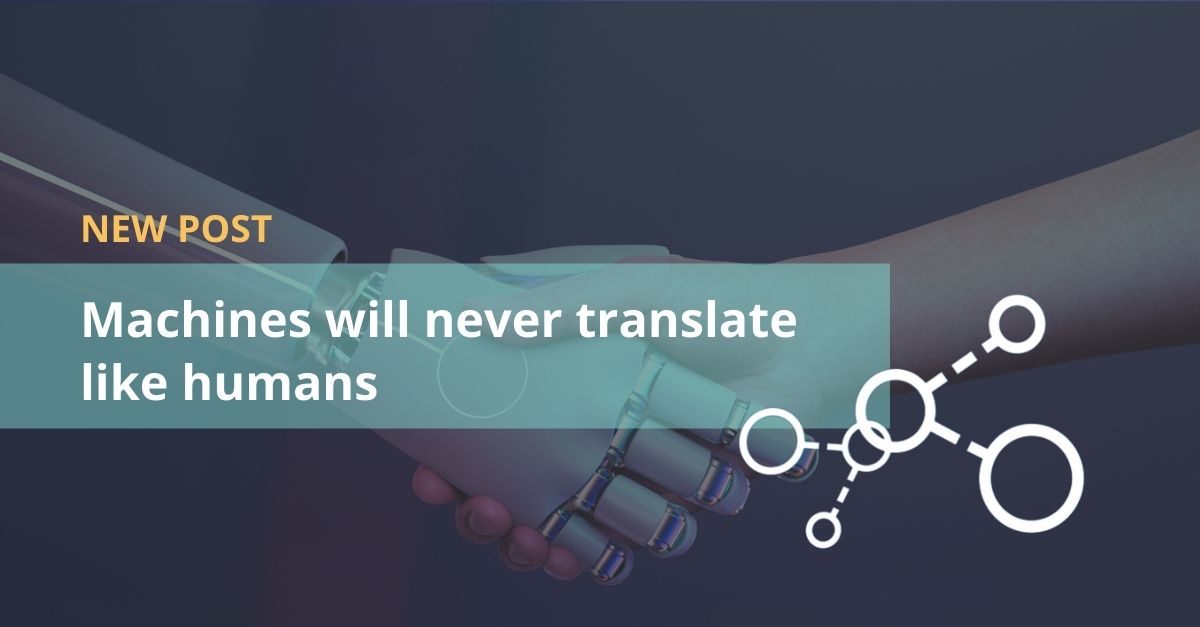The argument about what machines can(not) do and that they will never be as good as humans is as long as humankind. Amazingly enough, humans fly better and more efficiently than birds, sail through the seas and can actually communicate at great distances... with the help of the right tools.
Having witnessed the "Trados" fear in the 90's, this looks like "once again" attitude. MT is a tool, and wisely used, it can help both translators and the industry greatly. Fears and reporting such as "The future is here (artful manipulation)" are groundless.
MT works well as a plug-in in infrastructures, translators love it as a suggestion tool to enhance productivity. Again, going back to the "cash-in" prices when savvy translators adopted Trados or other CAT tools in the 90's before some agencies and LSPs - I can only say they all benefited from re-using old material within jobs and between jobs and clients.
Ten years on, the world accumulated enough data that Chomsky's predictions in the 60's could actually take place: there is enough data around so that data produces systems that are good enough translators (OK, hybridation in the shape of syntax and treebanks and some "prediction" or rules are required, but essentially the approach is data-driven).
As I put it in our blog some months ago "Google Translator’s ubiquity has done a lot of preparation work for what it is to come in the next few years. At least machine translation is not a black box any more. Translators, as practitioners, not only need good MT output, but also an understanding of what is behind it, how they can make a difference and above all a well-planned workflow. Post-editing is fun and those who get used to it never go back to a TM-based workflow. A lot of evangelism is still required during this transitional period and those closest to the output need to feel in control of things and see for themselves that they can influence MT with their feedback and are more necessary than ever."
Furthermore, it is no surprise that the EU's DGT decided not to renew the contract for a CAT-tool provider. It felt that despite some improvements in file management, the technology as such offers no change / leap forward. See our blog entry: CAT tool software is not good enough for Europe.
Lastly, some facts for those "machine haters":
- MT already produces more output in the world than human translators. Let's work out the math
- Registered translators in the world x 3,000 words a day = 900M words/day with "best human quality"
- Some 50M users press the "translate" button in translation sites (just multiply that by x number of words).
- Some of the most disappointing results, lack of care and attention, lack of QA and revision, "forgot to use the spell-checker" I have seen in my life as a linguist have come and actually keep on coming from humans. It is embarrassing to see some translators' output.
Partly, perhaps, because of the low-level entry in our industry and the lack of training and interest in re-training / acquisition of new skills. If I mention tools like Swordfish, OmegaT, Heartsome, Transit, most translators will not know what I am talking about.
No other industry would accept "professionals" who are familiar only with one type of tool (in our case CAT) and specifically, one brand. Personally, I'd feel very scared if my plumber, electrician or doctor tried to help me with such poor knowledge of market tools. (I freelanced during the 90's and then worked at LSPs for several years until I managed my own, so I am pretty familiar with both sides of the fence. I have also learnt a lot from freelancers who like to experiment and install programs and test new features, people who share experiences and knowledge. This benefits us all, but those are really a minority).




